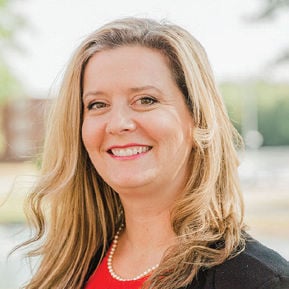About the Workshops
March 23–25, 2023 · Hilton Des Moines Downtown · Des Moines, IA
May 5–7, 2023 · The Madison Hotel · Washington, DC
May 22–24, 2023 · The Westin Portland Harborview · Portland, ME
June 1–3, 2023 · The Queen Mary Hotel · Long Beach, CA
Welcome to the 2023 Workshops for Department and Division Chairs! Department and division chairs are the bridges between department or division members and senior college administrators. Faculty members who take on the chair role need support to understand how to use the position to achieve both departmental and institutional goals. These four workshops provide opportunities for chairs to learn how to be more effective while serving in this critical position. The 2023 Workshops for Department and Division Chairs will focus on effective strategies to develop leadership skills and an institution-wide vision in the context of uncertainty and change.
Most chairs begin their positions with little or no training in the chair’s responsibilities and with incomplete knowledge of campus challenges. Effective chairs learn the value of developing an institution-wide perspective, communicating clearly, and collaborating with peers to promote greater institutional effectiveness. They must develop the ability to think strategically; plan actively for the future; and cooperate with both academic and administrative departments, including admissions, advancement, finance, and student affairs. At the same time, most chairs remain heavily invested in their faculty responsibilities of teaching, advising, service, and scholarship. How can chairs become campus leaders while they balance the competing priorities of their roles as faculty members, departmental advocates, and institutional planners? Participants will gain skills and perspectives useful to their roles and will meet colleagues who face comparable challenges at institutions similar to theirs.
This program is made possible by the generous support of Academic Search.
Who Should Participate?
The workshops are designed for incoming, new, and experienced chairs of departments or divisions at CIC member institutions. Deans who work directly with chairs are also welcome. Campuses are encouraged to send multiple department or division chairs to a workshop so that they can support one another in implementing new strategies. To ensure strong engagement, each workshop is limited to 100 participants.
Workshop Speakers
-

Chad Berry
Vice President for Alumni, Communications, and Philanthropy, Berea College
-

John W. Miller, Jr.
Professor of Social Work, Dean of Curriculum and Senior Diversity Officer, St. Norbert College
-

Tracy S. Parkinson
Executive Vice President and Provost, Mars Hill University
-

J. Andrew Prall
Vice President for Academic Affairs, Aurora University
-

Kathleen A. Rinehart
Principal, Conflict Consultants Network
-

Aimee Sapp
Vice President for Academic Affairs, William Woods University
-

Anita Jones Thomas
Executive Vice President and Provost, St. Catherine University
Hotel and Travel
Hilton Des Moines Downtown
435 Park Street
Des Moines, IA 50309
(515) 241-1456
Reservation deadline: Friday, March 3, 2023
Room Rate: $159 single/double
Reservations can be made online. Reservations made after Friday, February 24, cannot be guaranteed at the group rate and will be accommodated on a space-available basis.
Welcome to Hilton Des Moines Downtown, a bright and modern hotel in step with the tech-centric area. Part of the Des Moines Skywalk system, the hotel is connected to the Iowa Events Center, and offers quick access to local dining and Des Moines attractions which include Hy-Vee Hall, the Science Center of Iowa, and Des Moines Civic Center.
Airport Transportation
The Des Moines International Airport (DSM) is approximately five miles from the Hilton Des Moines Downtown. The hotel offers complimentary shuttle service to and from the airport. Please call (515) 241-1456 when arriving at baggage claim to arrange for transport to the hotel.
Uber and Lyft operate throughout the Greater Des Moines region and can get you to your destination. Each rideshare service picks up passengers on the south side of the terminal outside of the baggage claim exit and drops off at the airport entrance.
Hotel Parking
Hotel self-parking is available at $25 per day with in/out privileges.
Registration Information
Online registration for the Des Moines, IA Workshop for Department and Division Chairs is now closed.
Please contact Leslie Rogers-Brown to inquire if space is still available at lrogers-brown@cic.edu.
Registration Fees
| CIC Member Rate | Nonmember Rate | |
|---|---|---|
| First Registrant | $620 | $800 |
| Additional Registrants | $520 | $715 |
Dress Guidelines
Business casual clothing is appropriate throughout the workshop.
Cancellation Policy
Refunds will be made in full (less a $50 processing fee) for cancellations received more than ten business days prior to the workshop for which participants have registered. Refund requests received between five and ten business days of the start of the workshop incur a charge equal to 25 percent of the total registration fee. Requests received fewer than five business days prior to the start of the workshop are ineligible for a refund. Please send cancellation requests, in writing, to the attention of Leslie Rogers-Brown, CIC conference manager, by fax to (202) 466-7238 or by email to lrogers-brown@cic.edu. Registrations are transferable within an institution.
Health and Safety
CIC is committed to the health and safety of workshop participants. Please review the current CIC Health and Safety Guidelines and Requirements before registering for a workshop.










